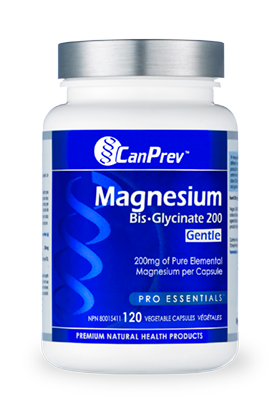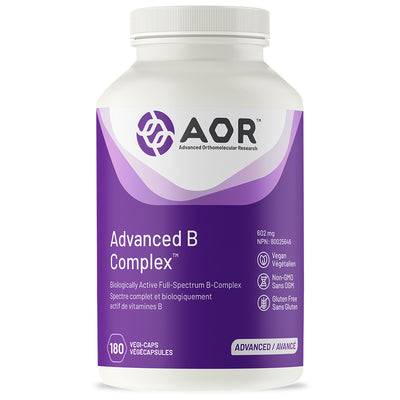Metabolic Health: Understanding and Supporting Mitochondrial Function
Reviewed by Aleksandra Morgan, CNPIn recent years, "metabolic health" has become a buzzword in the wellness community. But what does it actually mean, and why is it so crucial to our overall well-being? At its core, metabolic health refers to the body's ability to maintain stable levels of blood sugar, blood pressure, cholesterol, and body weight. Good metabolic health is foundational for preventing chronic diseases and promoting a long, vibrant life.
The Role of Mitochondria in Metabolic Health
Mitochondria are often called the "powerhouses" of the cell because they generate most of the cell's supply of adenosine triphosphate (ATP), a molecule that serves as an energy currency. This energy production is essential for all cellular functions, including muscle contraction, nerve impulse propagation, and biochemical synthesis.
Key Roles of Mitochondria in Metabolic Health:
- Energy Production (ATP): Mitochondria convert nutrients like glucose and fatty acids into ATP to power every cell in your body. Efficient energy production is critical for muscle function, brain health, and overall vitality.
- Regulation of Metabolism: Mitochondria manage metabolic pathways, including glycolysis, the Krebs cycle, and beta-oxidation of fatty acids, helping the body utilize fats and carbohydrates efficiently.
- Cellular Detoxification: Mitochondria help detoxify the common but harmful byproducts of metabolism and environmental toxins, reducing systemic inflammation and supporting cellular repair mechanisms.
- Mitochondrial Biogenesis: This refers to the creation of new mitochondria, which is essential for maintaining cellular health and supporting the body's ability to adapt to increased energy demands.
When mitochondria function properly, they efficiently convert nutrients from food into energy. However, when their function is impaired—due to factors like oxidative stress, poor diet, or lack of exercise—this process becomes less efficient. This can lead to a cascade of health issues, including insulin resistance, chronic fatigue, and weight gain. Here's how mitochondrial dysfunction contributes to or exacerbates these conditions:
Common Metabolic Health Issues
- Insulin Resistance and Type 2 Diabetes: When the body's cells become resistant to insulin, a hormone that helps regulate blood sugar levels, the pancreas compensates by producing more insulin. Over time, this can lead to type 2 diabetes, a condition characterized by chronically elevated blood sugar levels.
- Obesity: A complex condition influenced by genetics, environment, and behavior, obesity is often linked to metabolic dysfunction. Excess body fat, particularly visceral fat around your abdominal organs, can disrupt hormonal balance and contribute to insulin resistance.
- Cardiovascular Disease: Poor metabolic health can lead to high blood pressure, high cholesterol, and other risk factors for heart disease. These conditions are often linked to impaired mitochondrial function and increased oxidative stress.
- Non-Alcoholic Fatty Liver Disease (NAFLD): This condition, characterized by the accumulation of fat in the liver, is closely associated with obesity and insulin resistance. It can progress to more severe liver diseases, such as cirrhosis.
- Chronic Fatigue and Muscle Weakness: Mitochondrial dysfunction can lead to decreased cellular energy production, resulting in chronic fatigue and muscle weakness.
Supporting mitochondrial health is crucial since these cell powerhouses are key to energy production and metabolic regulation for the whole body. Supplements that enhance mitochondrial function can help alleviate symptoms, reduce oxidative stress, and improve overall health, offering valuable support in managing metabolic health.
Supplements that Support Mitochondrial Health
- Coenzyme Q10 (CoQ10): A vital component of the electron transport chain, CoQ10 improves mitochondrial function, energy production, and reduces oxidative stress. It’s particularly helpful in conditions like chronic fatigue, cardiovascular health, and neurodegenerative diseases. We recommend the stabilized & highly absorbable Bioclinic Naturals CoQ10 400mg supplement, as it is identical to the form produced by the human body for optimal bioavailability.

- Alpha-Lipoic Acid (ALA): A powerful antioxidant that helps regenerate other antioxidants like glutathione and vitamin C. It plays a crucial role in supporting mitochondrial energy production and reducing oxidative stress. NFH ALA SAP helps improve antioxidant status in the body and promotes the body’s regeneration of key antioxidants CoQ10, Vitamin C, Glutathione, and Vitamin E for an overall health and metabolism boost.

- L-Carnitine: This amino acid derivative transports long-chain fatty acids into the mitochondria for energy production. It enhances fat metabolism, making it particularly beneficial for athletes. Consider Designs for Health Carnitine Synergy, sports endurance and recovery, and overall heart health.

- NAD+ Precursors (e.g., Nicotinamide Riboside): NAD+ is essential for mitochondrial function and energy production. Supplements like nicotinamide riboside can increase NAD+ levels, supporting metabolic health, counteracting neurodegeneration, and potentially extending lifespan.Consider Provita NADH+, that blends NAD with CoQ10 and chlorophyll for a well-balanced and highly absorbable source of this important ingredient.

- PQQ (Pyrroloquinoline Quinone): Promotes mitochondrial biogenesis, enhances the efficiency of energy production, and protects mitochondria from oxidative stress. PQQ works synergistically with CoQ10. CanPrev BioPQQ provides 10mg of proprietary, clinically proven PQQ in a highly bioavailable formula in a vegetarian capsule.

- Magnesium: This mineral is involved in ATP production and is critical for many mitochondrial enzymes. Low magnesium levels can impair energy metabolism and mitochondrial function. AOR Magnesium Synergy is a beverage powder that can be mixed with water or juice for optimal Magnesium absorption.

- Resveratrol: A polyphenol found naturally in red grapes, resveratrol activates sirtuins, which are proteins that support mitochondrial function, biogenesis, and longevity. Consider Cyto-Matrix Resvera Matrix, a synergistic blend of Resveratrol and CoQ10 for excellent mitochondrial support.

Maintaining metabolic health is essential for preventing chronic diseases and promoting a high quality of life. By supporting mitochondrial function through a healthy lifestyle and supportive supplementation, we can optimize our body's energy production and overall well-being. Remember, small changes in diet, exercise, and stress management can have a big impact on your metabolic health. Start today, and your future self will thank you.
Disclaimer: The information provided in this blog is for educational purposes only and should not be considered as a substitute for professional medical advice, diagnosis, or treatment. Always seek the guidance of a qualified healthcare provider regarding any medical condition, dietary changes, or supplementation.













